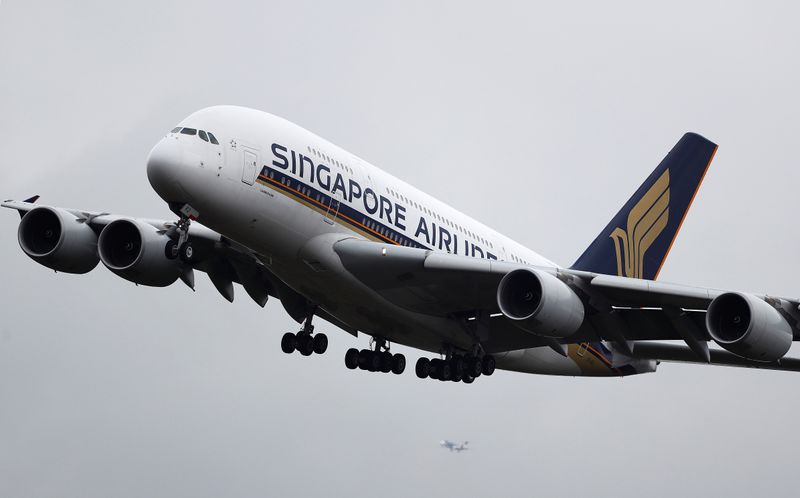This post was originally published on this site
https://i-invdn-com.akamaized.net/trkd-images/LYNXMPEG8S0XN_L.jpg
SINGAPORE (Reuters) – Singapore Airlines (OTC:SINGY) plans to turn one of its grounded jumbo jets into a pop-up restaurant and offer home-delivered plane food as part of a series of initiatives to try an re-engage customers who have not been able to travel due to the coronavirus pandemic.
With no domestic network, the Southeast Asian city-state’s national carrier (SI:SIAL) has been financially battered by curbs on international travel and recently laid off around a fifth of its staff.
The airline also said on Tuesday it would offer tours of its training centre and flight simulator experiences but scrapped an initial idea to follow a growing trend in Asia for scenic flights following backlash on environmental grounds.
“With COVID-19 drastically reducing the number of flights operated by the SIA Group, we have created unique activities that would allow us to engage with our fans and customers during this time,” Goh Choon Phong, CEO of Singapore Airlines (SIA) said.
Those who wish to dine aboard the double-decker A380, the world’s largest passenger aircraft, can choose between different cabin classes and menus designed by international chefs. Customers will be given goodie bags and those who wear traditional clothing to dine will receive additional gifts.
If customers opt to have the plane food delivered to their home, they will receive welcome videos, guides on how to heat and plate the dishes and “a specially curated playlist to recreate the SIA onboard experience”, the airline said.
Earlier this month, Thai Airways transformed the cafeteria of its Bangkok headquarters into an airline-themed restaurant, decked out with airplane parts and seats and cabin crew in full uniform.
Converting retired planes into eateries is not a new concept, but using active planes for such purposes shows the financial stress airlines are under with passenger traffic not expected to return to pre-pandemic levels until 2024.

